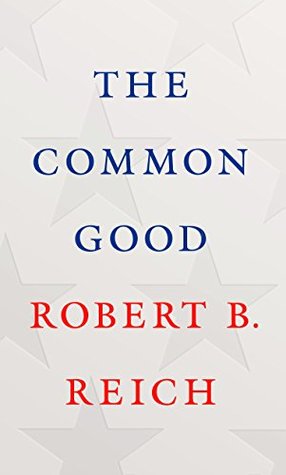More on this book
Community
Kindle Notes & Highlights
inclusive society, in that African Americans, women, and gays have legal rights they didn’t have a half century ago.
Americans began talking less about the common good and more about self-aggrandizement.
Looking Out for # 1. It extolled the virtues of selfishness to a wide and enthusiastic audience.
wide and pervasive sense that the system as a whole is no longer working as it should.
when John F. Kennedy asked that Americans contribute to the well-being of all. We no longer even discuss what we owe one another as members of the same society.
Today, some think we’re connected by the whiteness of our skin, or our adherence to Christianity, or the fact that we were born in the United States.
He used financial chat rooms on the Internet to savage the companies he bet against, causing their prices to drop and his bets to pay off.
Shkreli was called before a congressional committee to justify his price increase for Daraprim.
fake performance updates after having lost all the fund’s money and then hiding the losses by raiding funds from Retrophin, the first company he headed.
“They are the unwitting recipients of liberalism subsidy from large media and telecom companies,”
it). He shows contempt for anyone who gets in his way—whether judges, prosecutors, or members of Congress.
gouge their customers, loot their corporations, and defraud investors; in athletes involved in doping scandals; in doctors who do unnecessary procedures to collect fatter fees; in lawyers and accountants who look the other way when corporate clients play fast and loose, who even collude with them to skirt the law; in the Wall Street bankers who defrauded their investors and brought the nation to the brink of economic collapse in 2008 before they were bailed out by taxpayers.
the handiwork of likable men and women who appear to be good-willed and generous but who in reality have no concern for anything beyond their own driving ambition.
Wells Fargo admitted to putting millions of its customers’ deposits into credit card and bank accounts that the customers had never requested, plunging a number of them into default.
bank’s profits were soaring (it became the fourth most profitable U.S. corporation in 2016).
“it means that the good of some men takes precedence over the good of others, with those others consigned to the status of sacrificial animals.”
she argued, but when others are forced to pay for it they are on ground that could as easily justify “the enslavement, and therefore, the destruction of medical science, the regimentation and disintegration of all medical practice, and the sacrifice of the professional integrity, the freedom, the careers, the ambitions, the achievements, the happiness, the lives of the very men who are to provide that ‘desirable’ goal—the doctors.”
We opened doors of opportunity to women. Of course there was a common good. We were living it.
The “free market” would be a sham, and most people would lose out in it. (As we will see in the pages to come, something close to this has in fact occurred.)
Historians would alter history if by doing so they gained wealth or power.
civic trust is self-enforcing and self-perpetuating.
That’s because these inhabitants are more likely to trust that the disruptions won’t unfairly burden them, and that they stand to gain more than lose by them.
Societies experiencing economic stresses and widening inequalities are particularly vulnerable to tyrants intent on undermining democratic institutions by lying repeatedly, accusing critics of conspiring against “the people,” fueling racial and ethnic divisions, and inciting rabid nationalism.
The core of that identity has never been “we’re better than anyone else” nationalism.
“We will…not allow other countries to take advantage of us like they’ve been doing to a level that’s hard to believe,” he said in his surly inauguration speech.
love of country based on the common good entails obligations to other people, not to national symbols.
We must defend the right to vote and ensure that more citizens are heard, not fewer.


